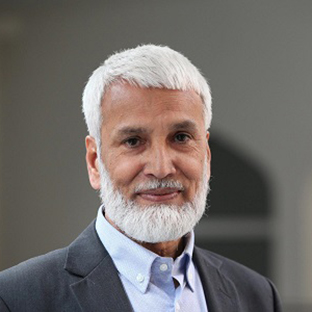If attention seeking is what Boris Johnson, the former British Foreign Secretary, was craving for by writing an article for the Daily Telegraph on the religious garment (niqab) of a tiny minority of Muslim women he got plenty. Dr Muhammad Abdul Bari argues this demonisation and mocking of niqab wearers at best displayed a brazen example of ignorant Islamophobia and the bullying of a minority. At worst it signalled a condoning of right wing extremist views.
While Boris Johnson’s comments have been rightly criticised by UK’s equality watchdog and leading figures across the political divide, including the Prime Minister, he managed to receive support from right wing cheerleaders in his own party and in the media. Indeed, his support among grassroots Conservatives appears to have been bolstered further. President Trump’s former adviser, the influential alt-right leader Steve Bannon who is forging links with European far right groups, praised Johnson saying he has “nothing to apologise for”.
In the ensuing argument that raged between supporters of the freedom of choice in wearing religious garments and the ‘liberal’ values and freedom to demonise religious practices, the immediate sufferers are the handful of niqabi Muslim women who are most vulnerable to physical and verbal abuse. Some in the ideological right have taken this ‘Johnson saga’ further to try and settle a score with the religion of Islam itself. Meanwhile, the Muslim Council of Britain has expressed its concerns, arguing that Conservative MPs’ support for Johnson has “shone a light on the underbelly of Islamophobia”.
Cultural bigotry such as Islamophobia, like racism, is not uncommon in the developed democracies of the West. In 2011, Baroness Warsi, the then Conservative co-chairman, lamented that Islamophobia has "passed the dinner-table test" and become widely socially acceptable in Britain. In recent years the politics of intolerance has gained momentum and the trend of bigotry, or ‘othering’ vulnerable communities, has been on the rise, undermining the pluralist democratic nature of many countries; unfortunately, this is rising in worrying proportions. That said, the recent electoral gains of far right politicians in some European countries is increasing the fear of a menacing turn in politics; one that led us to the brink of destruction not so long ago. Politicians who simply wish to increase their political capital without any thought for the consequences may exacerbate the destructive impact on future of their country.
Unlike some European countries Britain has not been as intolerant to Muslim women to the extent of banning the niqab, but hostility towards them has become normal part of life now. Whether it is immigration, integration, extremism or crime Muslims are most often at the centre. This pessimistic view of seeing the ‘Muslim glass half empty’ is frightening to many. Crude demonisation of a people to gain political influence or power is a sign of short-sightedness and undeniably detrimental in the long run.
It is important to note that the Muslim presence as a community in many western countries is relatively new. Coming from all corners of the world due to political instability or the ravage of war in their own countries, and for many other reasons, Muslims have generally started their lives on a lower playing field in the social and public arena. Their success in some sectors of society such as charity, health, business and entrepreneurship show that given the equality of opportunity, Muslims, like other citizens, can be an asset.
Human differences are inexorable. It should be seen against the light of natural diversity that enriches a society with complex and colourful experiences. Throughout our journey on earth diversity has been seen as a blessing by civilised people. Our innate differences converge with the same love, passion, hopes and concerns; we all are brothers and sisters in humanity. We are both dependent on each other and bound by the core principle of ‘live and let live’ in this small planet.
Whether we like it or not, global migration of people is a reality and we cannot solve this by building walls in our nation states. We need enlightened institutions like RSA, with a mission “to create the conditions for the enlightened thinking and collaborative action to address today’s most pressing social challenges”. RSA’s commitment for the “shared values of creativity, inclusivity and responsibility” can help combat the social problems that are now inundating our society. Perhaps RSA – as a non-partisan charity that has a history of tackling difficult challenges – can help to lead a healthy and civilised debate on the real anxiety experienced by a large section of the British public on the rapidly changing social and cultural scene?
RSA Fellow Dr Muhammad Abdul Bari is an educationalist and parenting consultant. He is author of A Long Jihad: My Quest for the Middle Way. He will be speaking about his work on 10th September.

Be the first to write a comment
Comments
Please login to post a comment or reply
Don't have an account? Click here to register.